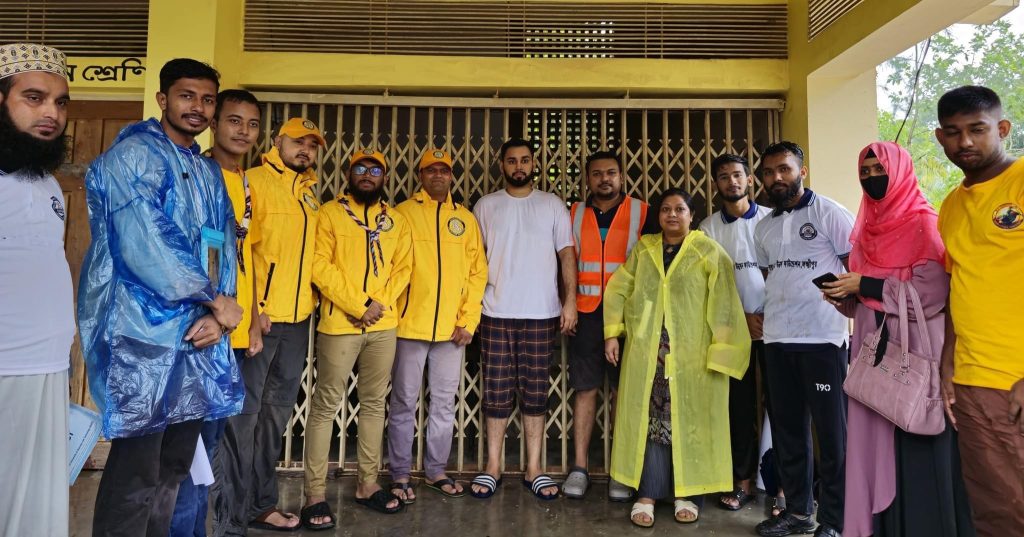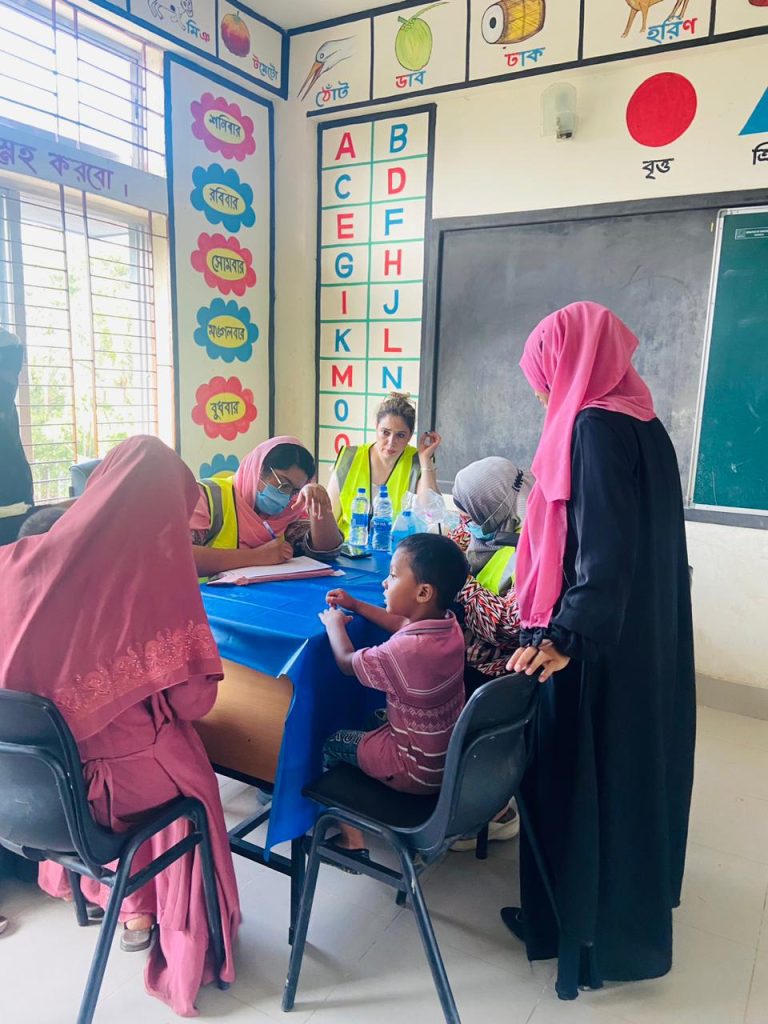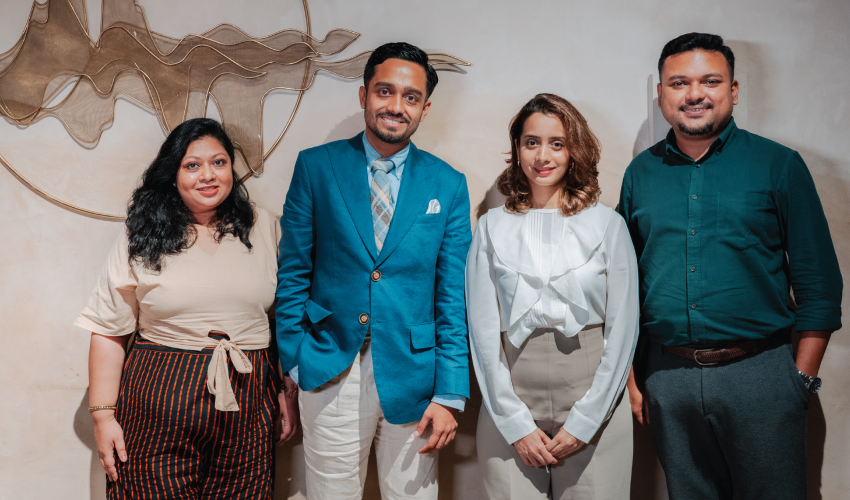By Usraat Fahmidah
August 5th will forever be etched in our memories as the day the country finally broke free from Sheikh Hasina’s iron grip. In the aftermath of the fall of her regime, the country plunged into momentary chaos, as power vacuums opened and a wave of uncertainty swept across the nation.
For a brief moment, with institutions crumbling overnight, it seemed as though everything had unraveled, and the nation stood at the edge of either rebirth or total collapse. Stores were being ransacked, and homes were being broken into as law and order practically dissolved.
In the midst of this confusion, as people faced an unknown future, something remarkable started to happen. Neighbors, friends, and even strangers came together, bound by a shared sense of purpose.
“Overnight, we transformed into a community of hundreds, dedicated to supporting one another,” recounts Ashfi K Ahmed, one of the co-founders of Citizens in Action Bangladesh (CiACT). “Our initial response to the crisis was through patrolling our community.”
CiACT is one of the countless community groups that naturally emerged during this turbulent period. The initial challenge was the heightened vulnerability of neighborhoods, as nighttime lootings began to rise. In response, CiACT’s first action was to establish community patrols—a coordinated eff ort to watch over their streets and safeguard residents in the absence of police forces.
Mishak Husain Ahmed, an entrepreneur and one of the co-founders of Citizens in Action Bangladesh (CiACT), shares, “During those days, I developed a Standard Operating Procedure (SOP) for the Tristate area, almost like a map, to aid our patrols. We designed the patrol strategy so people could pinpoint precise entry and exit points, turning the area into a well-guarded fortress.”

Mishak’s SOP enabled the team to endure countless sleepless nights with a sense of security as neighborhood patrols became well-coordinated. The SOP laid out logistical plans, including critical zones, essential information for patrollers, and guidelines for volunteers on the ground. While Mishak concentrated on refining the SOP, Ashfi took on a commander-like role, monitoring the patrollers’ live locations and verifying calls for assistance. She would then contact the Army or relevant authorities for support as needed. On the ground, Zubair, another co-founder, managed operations directly, ensuring swift responses to any incidents.
The team of four recounted those early days of community patrolling, which involved heavy trucks used as barricades, countless calls to verify distress signals, long nights spent volunteering on the ground to keep their communities safe, and raising medical funds for those injured in the protests.
“There were many others injured during the protests who went unidentified because they weren’t students—maybe a passerby, a rickshaw puller, or a security guard. Their needs were being overlooked. We realized we had this community from the Tri-State area, so we used our WhatsApp group to call for donations to fund their medical treatment,” adds co-founder Sharara Khan, who explains that alongside the patrolling they were helping collect funds for the injured.
All of this coordination took place through their WhatsApp community group, and the patrolling effort was done in collaboration with ERE (Emergency Response Effort).
“We initially focused on the Tri-State area, but it quickly became clear that wasn’t enough. Soon, we started receiving requests from Uttara, Bashundhara, Dhanmondi, and Mirpur, and that’s how we expanded,” explains Zubair Rahman, one of the four co-founders.
NEXT CHAPTER
As the number of members of their Whatsapp community grew, the call for requests grew in large numbers as well. People were joining from different parts of the country. Then, came the devastating floods which was the first big challenge for the people, and the interim government. It was at that moment they were compelled to rise up for the country.
The team explained how they leveraged their resources to support flood victims, opting for a different approach than direct relief distribution. “Initially, we collaborated with two other organizations to deliver supplies to flood victims in Lakshmipur,” Mishak shares. “We didn’t collect funds; instead, we gathered essential supplies. However, we soon realized that the aid distribution wasn’t effective. In flooded villages, sending rice wasn’t practical. That’s when we recognized this problem.”

Their next project targeted Lakshmipur, a neglected district due to its geographical location.
“As I connected with community members in Lakshmipur, I have to mention Ridoy, a local, who was phenomenal,” explains Mishak. “We sent Kazi Islam on behalf of CiACT to verify and strengthen our impact. The idea was for people to be empowered and accountable for themselves and their own communities.”
He continues: “A big issue was that people didn’t know where to deliver the aid coming from Dhaka because they weren’t familiar with the region. Locals told me that some aid workers would just leave the supplies behind because they were more interested in branding. Our approach was di erent. We wanted to empower the community so that they could help themselves, because the locals understand how their community works best.”
“So, you leveraged social media to make this happen?” I ask. “I found out locals through online community groups to see what they were doing, and reached out to them to create a list of necessities they needed. I also connected with two medical volunteers from those regions,” responds Mishak.
The team then coordinated with local medical volunteers on the ground, building networks to supply the resources the communities identified, such as medical supplies, and assisted in the creation of medical camps. The young CiACT group tapped into their network of contacts and corporate partners to gather the essential items requested by the locals.
Their efforts resulted in seven medical camps in Lakshmipur that saw hundreds of patients every day.
“We’re currently developing a case study on our Lakshmipur project,” shares Sharara, who visited Lakshmipur with Zubair to oversee the work. “We operated at the grassroots level, and during my visit, witnessed how everyone came together and how streamlined the process had become when the locals were in charge.”
CiACT’s journey began with a simple online group chat but soon evolved into a series of projects dedicated to serving the country.
“We envisioned CiACT as a platform for networking and collaboration, a bridge connecting communities that want to support with those in need of support,” shares Sharara.
It started as a community effort, but soon found itself transformed into an organization that empowers citizens to take action.
The agenda for their projects emerged from meetings with community members and the unique visions each founder brought to the table. One founder focuses on leveraging networks to connect under-resourced individuals with essential resources, another is passionate about conducting research to guide each project, while another is dedicated to the well-being of stray animals. Each project agenda is rooted in the well-being of their own communities, and when members from other areas reach out, they collectively pool resources to empower those communities as well.
Apart from Sharara, an architect with experience working with NGOs, none of the co-founders had backgrounds in social work. Yet, this didn’t hold them back. Marketers like Ashfi and Zubair, and entrepreneur Mishak, brought their unique skills and perspectives to the table–a team dynamic you think wouldn’t work.
Despite their diverse personalities—one punctual, another calm, one bursting with energy, and another calculative —the team’s dynamic synergizes to bring out the best in each member. This blend amplifies their collective strength.
In the broader context of the country’s reform, their collaboration reflects a nationwide awakening; the revolution has not only altered the course of history but has also inspired people to actively contribute to the nation’s future.
It was impressive to hear how they identified the problems–whether it’s calling for corporate social responsibility projects to move beyond branding or critiquing the conventional aid distribution system which is ineffective– they explain how they took a different approach with their projects.
“We identified what was missing. We named it Citizens in Action because citizens have been excluded from the decision-making process historically—the main stakeholders weren’t involved. That’s where we saw our role. We want to amplify those voices,” explains Sharara.
In many ways, the birth of CiACT and its vision reflects the broader desire shared by everyone in this country after its rebirth: to reclaim agency and ensure that the collective power contributes meaningfully to the well-being of our communities which is not dictated by age-old rotten bureaucratic systems.
“We didn’t have the power to do anything previously. We wanted to do a lot of things but we were young. Now, we are all in our 30s, and we have our life together somewhat. So, we can contribute some of our energy in our community and for our country,” reflects Ashfi.
”We were inspired by Gen Z,” shares Zubair. “They were the ones on the ground. As Millennials, what we can do from our position is help create a path forward, guiding others along the way.”
Although Gen Z pushed the movement forward with their presence on the ground, the team acknowledges how they, as Millennials, want to do something from their place of position too. Reflecting on their perspectives, the team jokes about finally having a voice after sixteen years of being silenced.
What’s next for CiACT? The team is once again focusing on critical issues that are often overlooked: providing free psychological support for individuals dealing with trauma from the events of July, projects that promote Bangladeshi culture, and engaging corporations to develop more responsible CSR initiatives that create meaningful impact in the coming days.
“Empower, collaborate, and synergise,” sums up Ashfi.
Although these are uncertain and challenging times, spending an evening with these young changemakers made me realize that citizens like them with their approach and mindset are steadfastly working to propel the country toward its second, beautiful rebirth. It is the citizens reclaiming agency, and driving change.
Check out CiAct’s official website here.













